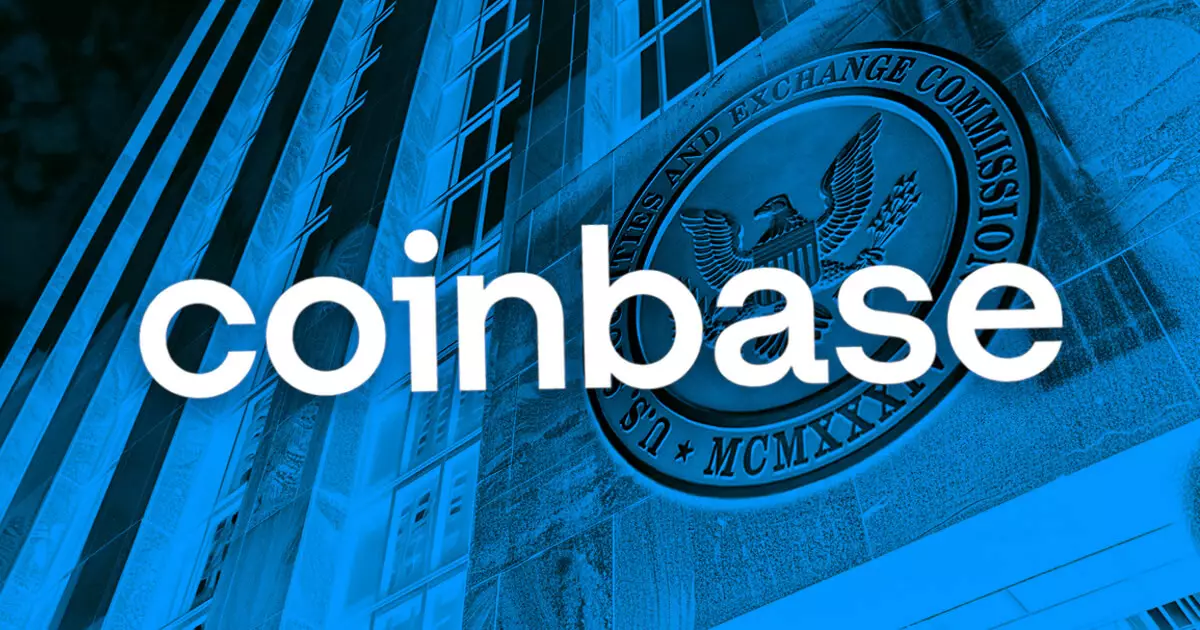The ongoing legal skirmish between the U.S. Securities and Exchange Commission (SEC) and cryptocurrency exchange Coinbase has reached a critical juncture, with the SEC requesting a significant extension in the timeline for fact discovery in their contentious lawsuit. This request, which seeks an extension from October 18 to February 18, 2025, underlines not only the complexities inherent in navigating cryptocurrency regulations but also the broader implications for the industry as a whole.
In a formal correspondence with Judge Katherine Polk Failla dated September 18, the SEC laid out its need for additional time. The agency cited the “substantial volume” of documents it must analyze—an impressive tally of over 133,582 unique items. By emphasizing their commitment to fulfilling the court’s discovery obligations, the SEC made it clear that this is not merely an attempt to delay proceedings but a genuine request designed to ensure thoroughness in a high-stakes case.
This request is particularly significant as it marks the first time the SEC has sought an extension in this matter, signaling that the complexities and nuances of the case have proven more challenging than initially anticipated. Moreover, the regulator proposed to amend the Civil Case Management Plan, pushing back subsequent deadlines by four months—an adjustment that would influence not just discovery but also key motions and preparations for a potential trial.
The SEC’s lawsuit, initiated in June 2023, accuses Coinbase of acting as an unregistered securities broker, claiming that several digital assets listed on its platform qualify as unregistered securities under U.S. law. This assertion aligns with the Howey Test, a longstanding legal test used to determine whether certain transactions constitute securities sales.
However, Coinbase has taken a firm stance against the SEC’s accusations, arguing that the digital assets it offers do not meet the legal criteria to be classified as securities. Furthermore, the company contends that the SEC’s lack of regulatory clarity hampers its ability to operate within a well-defined legal framework, claiming that the feet-dragging on clear definitions has led to overreach in enforcement actions.
The Broader Implications of the Case
As the SEC and Coinbase navigate the intricacies of this lawsuit, the outcome bears significant consequences not just for the two parties involved, but for the entire cryptocurrency sector in the United States. If the SEC prevails, it could establish a precedent that allows for more rigorous oversight over digital assets, potentially stifling innovation and deterring investors. On the flip side, a ruling in favor of Coinbase could provide much-needed clarity to the industry, validating the notion that many cryptocurrencies do not fall under traditional securities frameworks.
Notably, the issues at hand aren’t limited to just this case; they echo larger conversations within regulatory circles about how best to approach the evolving landscape of blockchain technology and digital finance. As cryptocurrency continues to gain mainstream traction, the tension between innovation and regulation grows ever more pronounced.
Conclusion: The Future of Crypto Regulation at Stake
With both parties consenting to the SEC’s request for an extension, they now have more time to navigate this complex legal terrain. The extension provides an opportunity for a more thorough examination of the documents and claims, although it postpones the eventual resolution of this contentious issue.
This lawsuit is more than just a legal battle; it represents a pivotal moment in the ongoing narrative of cryptocurrency in America. As the industry grapples with regulatory frameworks, the outcome of the SEC vs. Coinbase could shape the landscape for years to come, establishing vital precedents and potentially influencing future governance of digital assets. The eyes of the crypto world are undoubtedly watching closely, pondering how the scales of justice will tilt in this landmark case.

